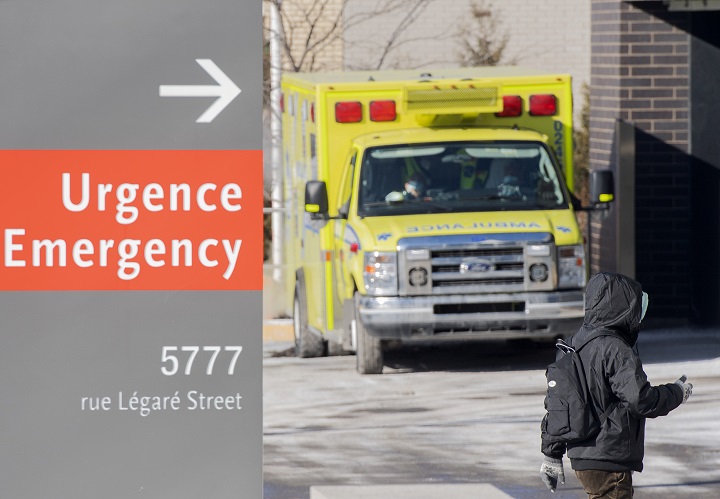The union representing Urgences-Santé Paramedics, which covers the territories of Montreal and Laval, will apply pressure tactics on Monday to protest against working conditions that it considers unacceptable.

“On Monday, there will be the watchword to simply allow the paramedics who are already exhausted by COVID — but especially by the overload of work — to go eat,” said Claude Lamarche, interim president of the Syndicat du Préhospitalier affilié à la Confédération des Syndicats Nationaux. (SP-CSN)
READ MORE: Take a look inside a Montreal 911 call centre
Lamarche made clear that pressure tactics will not affect the general population because a full meal break will not be allowed because paramedics must always provide service to the population.
“It will still allow a slightly larger meal break than what the employer obliges, which means half an hour,” Lamarche said.
According to him, these lunch breaks are often reduced, cancelled, or must be eaten while stuck in traffic, in an ambulance which has just transported a patient and has not been cleaned or disinfected.
“There is no paramedic who will refuse to make a call even if he has been waiting for three hours for his meal break, for example, to go and help a child. (…) There is no paramedic who will grumble” when it comes to life and death, he said.
READ MORE: Paramedics strike at 40 Quebec ambulance services to demand pay increase
Urgences-Santé spokesperson Stéphane Smith called on the ministry to find solutions to the heavy workload caused by the staffing shortage.
The workers are “exhausted,” Lamarche said.
“People are jumping ship right now. … It’s very worrying.”
He criticized the use of compulsory overtime instead of using it only in exceptional cases.
This creates a vicious circle, he says, as workers “make themselves less and less available (for extra shifts), to take days off.”
He also said that the paramedics drive “less than 50 per cent of the workforce on night shifts.”
“We need backup, we need support,” Lamarche said.
Smith confirmed that this ratio has been reached several times, especially during weekend nights, and that managers who have the necessary training must fill shifts in the field.
“In the last year, there has been almost no hiring — it is not something that is easy,” Smith said.
“Demand is high, with a number of employees down. There are consequences for the employees who are there now.”
Smith placed some of the blame for the recruiting difficulties on the SP-CSN.
One of the pressure tactics used during negotiations for the renewal of the collective agreement last year was not to take on any trainees.
The union, for its part, argued that many other employers offered internships, so the students should not have had difficulty in obtaining their diplomas.
The union is asking for “incentive measures,” in particular monetary measures, to attract labour or make overtime attractive.
Compared with the private sector that serves other regions, “we are not competitive on the market,” Lamarche said.
Urgences-Santé did not wish to comment on this statement, as there is an agreement in principle that has not yet been signed or made public.
READ MORE: Is the Urgences-santé dispatcher shortage causing deadly delays?
For his part, Smith wants paramedics to be allowed to “send patients to places other than the emergency room” when it is not necessary and another health service could better meet their needs.
At this time, “paramedics have no choice but to offer the transfer to all patients, regardless of the situation,” which can cause unnecessary wait times, Smith said.
The Quebec Minister of Health, Christian Dubé, announced last month that his ministry “will authorize, in line with the vision of the Health Plan, the implementation of regulatory paramedicine which aims to allow, in close collaboration with other professionals, to refer the patient to the right care and the right professional instead of systematically transporting them to the emergency room.”




Comments